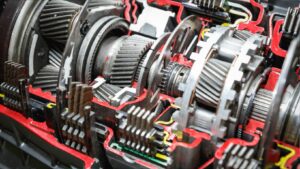Mechanical Engineering Cars
Mechanical engineering has played a pivotal role in shaping the evolution of cars, driving advancements in performance and efficiency. The intricate design and precise mechanisms in modern vehicles are a testament to the seamless fusion of engineering excellence and automotive innovation.
Early Mechanical Innovations
- In the early days of automotive engineering, mechanical innovations laid the groundwork for the development of cars.
- Innovations like the invention of the internal combustion engine revolutionized the automotive industry.
- The introduction of steering mechanisms and braking systems marked significant milestones in enhancing safety and control in vehicles.

- Today, automotive engineering has witnessed remarkable advancements driven by cutting-edge technology.
- Electric and hybrid vehicles represent the forefront of modern automotive engineering, focusing on sustainability and energy efficiency.
- Advanced driver-assistance systems (ADAS) integrate mechanical engineering principles with electronics to enhance safety and driving experience.
Key Mechanical Components in Cars
Mechanical engineering cars plays a pivotal role in shaping the evolution of cars, driving advancements in performance, efficiency, and safety. The design and functionality of key components in vehicles are a testament to engineering excellence and automotive innovation.
The engine is the heart of a car, converting fuel into mechanical power. Internal combustion engines, prevalent in most vehicles, ignite fuel to generate energy. Modern engines are designed for efficiency and emissions control, with advancements in technology enhancing performance while reducing environmental impact.
Transmission systems transfer power from the engine to the wheels, enabling the vehicle to move. Automatic transmissions shift gears seamlessly, providing a smooth driving experience. Manual transmissions offer more control to the driver, allowing for precise gear selection. Continuous advancements in transmission technology aim to improve fuel efficiency and overall driving performance.
Impact of Mechanical Engineering on Car Performance
Mechanical engineering cars plays a crucial role in enhancing car performance, influencing factors such as fuel efficiency, durability, and reliability. In the realm of mechanical engineering, fuel efficiency stands as a cornerstone of car performance. The optimization of engine design, transmission systems, and aerodynamics directly impacts the amount of fuel consumed per mile traveled. Engineers strive to minimize energy loss and enhance combustion efficiency. For instance, the use of turbocharging and direct fuel injection improves power output without compromising fuel economy. These advancements highlight the intricate balance between performance and efficiency in modern vehicles.
The principles of mechanical engineering are deeply embedded in ensuring the durability and reliability of cars. From the selection of robust materials to the implementation of rigorous testing protocols, engineers focus on extending the lifespan and performance consistency of vehicles. Innovations such as advanced metallurgy for engine components and enhanced corrosion-resistant coatings exemplify the dedication to longevity and reliability. By integrating cutting-edge technologies and materials, mechanical engineers uphold the highest standards of durability to meet the demands of diverse driving conditions.
In the realm of mechanical engineering for cars, future trends are shaping the industry to meet evolving demands and technological advancements. Engineers are at the forefront of innovation, driving changes that redefine the way vehicles operate and interact with their environment.
Electric vehicles (EVs) and hybrid technologies represent a significant shift in the automotive landscape, with mechanical engineering playing a crucial role in their development. The integration of electric motors, battery systems, and regenerative braking systems requires precision engineering to optimize performance and efficiency. Mechanical engineers are constantly innovating to enhance the driving range, charging speed, and overall sustainability of EVs.
Autonomous vehicle technologies are revolutionizing the concept of driving, with mechanical engineering steering the development of self-driving cars. From sensor integration to artificial intelligence algorithms, engineers are creating sophisticated systems that enable vehicles to perceive their surroundings and make real-time decisions. This technology not only focuses on improving safety but also on enhancing the overall driving experience by increasing convenience and reducing human errors.

